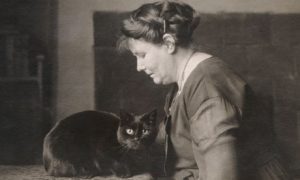
“The Metaphysics of May Sinclair”
By Emily Thomas (Durham, Philosophy)
Date: Friday 16 March, 2018
Time: 1040-1230
Place: H-232
Abstract: May Sinclair (1863 – 1946) is best known as a novelist, and her fiction is well studied by literature scholars. It is less well known that Sinclair was a philosopher, and there are no studies of her philosophical work. This paper will address that neglect, providing the first study of Sinclair’s philosophy. I’ll dig out her metaphysical system, and show how she argues for it. Sinclair defended a version of British idealism, at a time when British idealism was slowly dying. Impressed by the ‘new realism’, advocated by philosophers such as Russell, C. D. Broad and Samuel Alexander, Sinclair argues that idealism can only survive if it takes on elements of realism. Of the contributions made to philosophy by realism, Sinclair argues the most important is their appreciation for space and time.
About the speaker: Dr Thomas writes on space and time in early modern and early twentieth century philosophy. She also works on related metaphysical issues, including substance, change, motion, idealism, process, personal identity, and philosophy of religion. She completed her PhD at Cambridge (2013) and held a postdoc at the University of Groningen (2013-2016). She an editor for the British Journal for the History of Philosophy, and sits on the Board of Advisors for the International Association for the Philosophy of Time. Dr Thomas currently holds two research grants. Her Netherlands Research Council (NWO) Veni grant supports her work on early modern metaphysics. Two books are forthcoming from this project. Absolute Time: Rifts in Early Modern British Metaphysics (monograph, Oxford University Press) explores the view, popularised by Newton, that time or duration is a kind of thing. Early Modern Women on Metaphysics (edited volume, Cambridge University Press) recovers the views of women philosophers who have traditionally been neglected in the history of my discipline. In addition, she has authored the first scholarship ever on British idealist Hilda Oakeley. Her British Academy Rising Star grant is being used to promote discussion between historians and metaphysicians of time. The grant funded a conference, and she is editing two blog series connected with it: on “Time: Exploring its Philosophy and History” and on “Impact and Engagement for Early Career Philosophers”.
